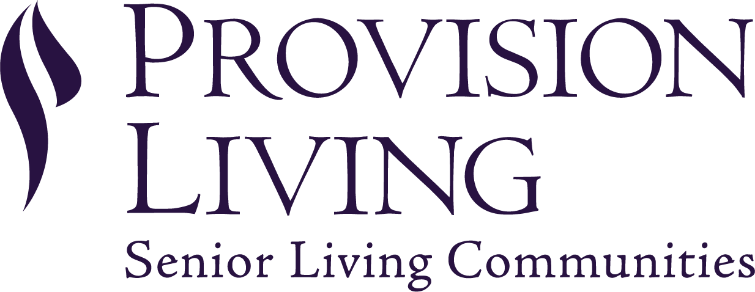As our loved ones age, maintaining their physical, mental, and nutritional health becomes increasingly important. Studies show that a holistic approach to wellness—one that incorporates mental and physical stimulation, a balanced diet, and social engagement—can significantly improve the quality of life for seniors. In this healthy living for seniors guide, we’ll explore essential activities and dietary tips to keep seniors healthy, happy, and thriving.
Daily Exercise: A Foundation for Health and Independence
Daily exercise is crucial for preserving fine and gross motor skills, balance, and physical independence. For older adults, staying physically active also promotes social engagement, which is vital for mental well-being. Seniors who maintain regular physical and social activities are likely to experience better overall health and a higher quality of life.
Why Exercise Matters
The benefits of exercise for seniors extend far beyond physical fitness. Regular movement helps reduce the risk of chronic conditions such as heart disease, diabetes, and osteoporosis. Moreover, it enhances mood by releasing endorphins, often referred to as the “feel-good” hormones, which can alleviate symptoms of depression and anxiety.
Pro Tip: Incorporate a mix of aerobic exercises, strength training, and flexibility routines to cover all aspects of physical health. Activities like walking, swimming, and yoga are particularly beneficial. For those with mobility issues, chair exercises or aquatic therapy can be excellent alternatives.
Creating a Sustainable Exercise Routine
It’s important to tailor exercise routines to individual capabilities and interests. Start with low-impact activities like walking or stretching, and gradually increase intensity as strength and stamina improve. For those who may feel intimidated by starting a new exercise regime, group classes or community activities can provide motivation and a sense of camaraderie.
Learn more about Independent Living options at Provision Living that support active and engaged lifestyles.
Pet Therapy: A Joyful Boost for Mental and Physical Health
Pet therapy is a meaningful and often inexpensive way to enhance emotional well-being and encourage physical activity. Whether it’s a beloved pet at home or a visiting therapy animal in a care community, the companionship of animals can bring long-term health benefits, including reduced anxiety, improved mood, and increased physical movement.
The Science Behind Pet Therapy
Research has shown that interacting with animals can lower blood pressure, reduce stress levels, and even decrease pain perception. The simple act of petting a dog or cat releases oxytocin, a hormone associated with bonding and emotional connection. This makes pet therapy an effective tool for combating loneliness and promoting mental health in seniors.
How to Incorporate Pet Therapy into Daily Life
For those living independently, owning a pet can provide structure to the day, with regular feeding, walking, and playtime routines. For those in care settings, arranging for regular visits from therapy animals can bring joy and reduce the monotony of daily routines.
Interested in a community that values holistic care? Contact Provision Living to learn more.
Music and Artistic Expression: Nurturing the Mind and Soul
French poet Victor Hugo once said, “Music expresses that which cannot be put into words and that which cannot remain silent.” For seniors, music and artistic expression are powerful tools for mental health, particularly for those experiencing cognitive decline. Engaging in creative activities stimulates the right hemisphere of the brain, which is often less affected by diseases like dementia.
The Role of Music in Cognitive Health
Music therapy has been found to improve memory, reduce agitation, and enhance communication in individuals with Alzheimer’s disease and other forms of dementia. Listening to familiar songs from one’s youth can trigger memories and emotions, providing comfort and a sense of identity.
Pro Tip: Creating personalized playlists with a mix of favorite songs from different life stages can be a deeply rewarding activity for seniors. Music sessions can be both a therapeutic tool and a social activity when shared with others.
Explore how Memory Care at Provision Living incorporates innovative therapies like music and art to support cognitive health
Art as a Form of Self-Expression
Art programs are especially valuable, offering seniors a way to express themselves creatively, which can boost self-esteem and provide emotional relief. Moreover, these activities can inspire others in the community to participate, fostering a sense of connection and shared purpose.
Art therapy also offers a non-verbal outlet for those who may struggle with traditional communication due to cognitive decline. Painting, drawing, or crafting can become a form of storytelling, revealing emotions and thoughts that might be difficult to express otherwise.
Diet and Nutrition: Fueling the Golden Years
Good nutrition is the body’s first line of defense against chronic health conditions like diabetes and heart disease. As we age, our nutritional needs change, making it essential to focus on nutrient-dense foods that support overall health.
The Importance of a Balanced Diet
As metabolism slows with age, the body becomes less efficient at processing certain nutrients, making a balanced diet even more crucial. Ensuring that each meal is rich in vitamins, minerals, and antioxidants helps maintain energy levels, supports immune function, and promotes bone health.
Learn about Dining at Provision Living to see how we prioritize both nutrition and flavor in our meals.
Planning Ahead
Meal planning can be a game-changer for seniors. The National Institute on Aging encourages older adults to plan their meals and shopping lists in advance, ensuring a varied and balanced diet. This approach not only helps meet nutritional needs but also makes grocery shopping more efficient and cost-effective.
Pro Tip: Involve seniors in the meal planning process to encourage independence and cater to their preferences. This can also be a social activity when done in a group setting, with everyone sharing recipe ideas and cooking tips.
Choosing Healthy Fats
Healthy fats, such as those found in olive oil, avocados, and nuts, are vital for energy and vitamin absorption. Incorporating omega-3 fatty acids into the diet can improve cholesterol levels, lower blood pressure, and reduce the risk of heart disease and stroke.
Fats are also crucial for brain health, particularly in older adults. Omega-3 fatty acids, found in fatty fish like salmon and mackerel, have been shown to reduce the risk of cognitive decline and dementia.
Replacing Empty Calories
As metabolism slows with age, it’s important to focus on nutrient-dense foods that promote health without adding unnecessary calories. Swapping out chips for hummus and veggie sticks, or choosing lean proteins like fish and turkey, can make a big difference in maintaining a healthy weight and overall wellness.
Pro Tip: Keep healthy snacks readily available to avoid the temptation of reaching for less nutritious options. Simple swaps, like replacing sugary drinks with water or herbal tea, can also significantly improve overall health.
Spicing Up Your Life
Too much sodium can lead to high blood pressure and other health issues. Instead of relying on salt, seniors can enhance their meals with a variety of herbs and spices. Experimenting with seasonings like basil, oregano, turmeric, and cumin can add flavor and health benefits to any dish.
Using fresh herbs not only enhances flavor but also provides additional nutrients. For instance, parsley is rich in vitamin C, and turmeric has anti-inflammatory properties. These small additions can make a big impact on overall health.
Considering Supplements
Sometimes, it’s challenging to get all the necessary nutrients from food alone, especially if appetite diminishes with age. Supplements such as B12, omega-3 fatty acids, calcium, and vitamin D can help fill in the gaps, but it’s crucial to consult a healthcare provider before starting any new supplement regimen.
At Provision Living, we understand the importance of nutritious and delicious dining options. Our community is dedicated to providing meals that meet the dietary needs of our residents while making them feel right at home. We work with nutritionists to ensure our menus are balanced, tasty, and cater to a variety of dietary needs.
The Role of Social Interaction in Healthy Living For Seniors
Beyond physical and mental activities, social interaction plays a critical role in maintaining overall health in seniors. Regular engagement with family, friends, and community members can reduce the risk of depression, delay cognitive decline, and even boost the immune system.
Building a Supportive Community
At Provision Living, we prioritize creating a vibrant, inclusive community where residents can form meaningful connections. Regular social activities, group outings, and communal dining experiences foster a sense of belonging and help combat feelings of isolation.
Pro Tip: Encourage seniors to participate in group activities, whether it’s a book club, gardening group, or exercise class. These interactions not only provide mental stimulation but also create opportunities for forming lasting friendships.
When to Seek Additional Support
As much as we’d like our loved ones to maintain their independence forever, there may come a time when additional support is necessary. If you’re wondering when the right time is to transition your loved one to assisted living or memory care, we invite you to take our quiz, “Knowing the Right Time.”
Making this decision can be challenging, but recognizing the signs early—such as difficulty managing daily tasks, increased forgetfulness, or a decline in physical health—can ensure that your loved one receives the care they need in a timely manner.


